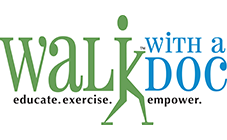Good morning! Today we’ll talk about atrial fib and you don’t need to take notes. I’ll send you mine.
What is it? Atrial fib (aka A Fib) is one of the most common rhythm problems. It is irregular activity that usually comes from the roots of the pulmonary veins.
My heart skips beats a lot. It will go like boom-boom-boom-then nothing-then boom. Is that A Fib?
Probably not. It’s likely PVC’s and/or PAC’s (premature ventricular/atrial contractions). They are much more common. Good idea to check with your doctor 👍.
That doesn’t sound very scientific. How do I find out for sure?
If you are noticing a racing heartbeat, an irregularity, or something that concerns you; you should let your doctor know. They will possibly want you to wear a Holter monitor for 24-48 hours or possibly look into one of these (not a sponsor). That will show us exactly what your heart’s electricity is doing. There are multiple different rhythm issues and many are treated in different ways. If you have a smartwatch and you’re curious how good it is at detecting atrial fib, the answer is about 70-90%.
What causes it? The most common risk factors for a fib are high blood pressure and coronary artery disease. We also see a fib with heart failure, certain valvular diseases (mitral is most frequent), excessive alcohol use, sleep apnea, tobacco an overactive thyroid, and several other issues. Its incidence certainly increases with age, but I’ve seen a couple of young ones recently (‘energy drinks’).
I like it better when you talk about goofy stuff.
That’s not a question.
Okay, I like to make things really simple. A fib goes undiagnosed a lot (most people are asymptomatic) and it causes TIAs (transient ischemic attack which is a stroke that goes away within 24 hours), strokes, heart failure, and some other stuff.
If you’ve had a TIA or a stroke, I would ask your doc if a fib is something they want to look into. Many, many times when we are treating someone who presents to the emergency department with a stroke, we hook them up to telemetry and they are in a fib or they show bursts of it sometime during their stay.
I don’t want a fib.
Well said. I don’t want it either. A fib is often a symptom of another condition (hypertension, CAD, heart failure, etc.). So, we need to avoid those.
Walk. Seriously, if you maintain 150 minutes a week and keep that BMI in a respectable range you will dramatically reduce your risk. And take it easy on the alcohol use.
Why did you start a sentence with ‘And’?
I’m not going to answer that.
What happens to me if I get A fib?
It doesn’t cause heart attacks and it doesn’t cause you to drop dead, but it does raise your risk of stroke. With the correct treatment, you will forget that you have it and you will remain a ‘normal’ person. IMO, these are the 3 things you need to do (in order of importance):
1) Thin the blood – If you have congestive heart failure, high blood pressure (>130/85), if you’re 65 or older, have diabetes, vascular disease or you have had a TIA or stroke you need to talk with your doctor about being on a blood thinner. Coumadin, Pradaxa, Xarelto, and Eliquis are all possible options.
*This tool and this tool are 2 calculators we often use when deciding whether or not to anticoagulate.
Which blood thinner should I take?
I’m not touching that with a 10-foot pole. That’s my day job. Now I’m just kickin’ back with my dog writing a newsletter.
It’s an important discussion for you to have with your doc – each option has pros and cons. The key is taking one if your doctor believes it’s necessary.
I hate blood thinners. What about aspirin?
A lot of people do but they essentially normalize your risk of a stroke. Aspirin, for a fib, doesn’t cut it. I wish it did.
2) Slow the heart rate:
A mnemonic device for common heart rate-slowing drugs is BCD. Beta-blockers, calcium channel blockers, and digoxin. Heart rate control is important
3) Get the heart back in rhythm (yep, this is the least important according to the majority of the literature): Studies have definitively shown that most people have no idea they are in atrial fib. Many docs like rate control (blood is thin and heart rate is not too fast (I like <80 bpm at rest and less than 115 with exercise)). Studies show that quality of life is going to be better than if they keep coming back to get shocked. Guidelines say that in most cases it’s a good idea to cardiovert once but to avoid excessive use. It’s not a safety thing, it’s just not necessary.
What about ablation? I think my neighbor had that.
There are certainly times when that is indicated, but not as often as you might think. Best to discuss this with your doctor/cardiologist and see if you are a good candidate. Outside the realm of this newsletter which has already gone too long.
Enjoy your weekend!
david


